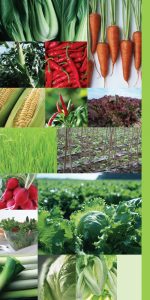Ukrainian consumers’ behavior is changing to sustainable consumption despite the financial crisis. Without any marketing efforts, Ukrainians are going back to “grandma’s recipes” and village markets or bulk home deliveries for basic fruit and vegetables at prices below supermarkets’ bids.
 Many consumers admit that going back to shopping at food markets gave them a chance not only to save the depreciated hryvnyas but also taste the difference of mass-produced veggies and those grown by babushkas in the villages near big cities.
Many consumers admit that going back to shopping at food markets gave them a chance not only to save the depreciated hryvnyas but also taste the difference of mass-produced veggies and those grown by babushkas in the villages near big cities.
In fact, about one third of Ukrainians are not urban according official statistics. This makes a very big difference especially now when food crisis is discussed in the Western mass media. Ukraine is not likely to face any food crisis given the intensity of private farming for family needs which can help sustaining the Ukrainian urban population despite the financial crisis trimming the sowing areas around Europe.
The reverse side of the Ukrainian financial crisis is a higher level of self-sustainability (growing some basic veggies in the small land plots of dacha‘s) and limiting of the dependency on traditional supply chains such as supermarkets which tend, in their turn, to buy from large scale agricultural producers utilizing conventional [chemical] means of crops cultivation.
As a result, Ukrainian are becoming more considerate of the actual difference in the taste and quality of natural organic foods against the conventional mass-produced and, in fact, more expensive vegetables and fruits.
The international experience proves that sustainable organic agriculture is 25-35% more efficient than conventional chemical farming methods while long-term effect of the organic technologies result in preserving and improving the natural qualities of soil.
For Ukraine, boasting over 30% of most fertile black soils, sustainable organic agriculture is a real opportunity to gain and retain the European leadership in organic foods production.
The Federation of Organic Agriculture of Ukraine is the NGO which has been the ultimate source of lobbying during the past 10 years for the Organic Production Law which will set clear rules and provide additional incentives to Ukrainian agricultural producers.
With over 300,000 hectares of Ukrainian fields organically certified in 2008, the agricultural sector of Ukraine is in a great competitive advantage position. At the same time, the pressure, due to the increased prices of the imported agrichemicals, will make many farmers reconsider the technologies and choose for the organics.
The natural evolution of the Ukrainian market towards sustainable technologies in agriculture will enable the growing number of organic farms gain loyal customer base and thus financial stability which will let them expand the operations in the coming years much faster compared to the farms practicing conventional methods and thus dependent on the imported ingredients.